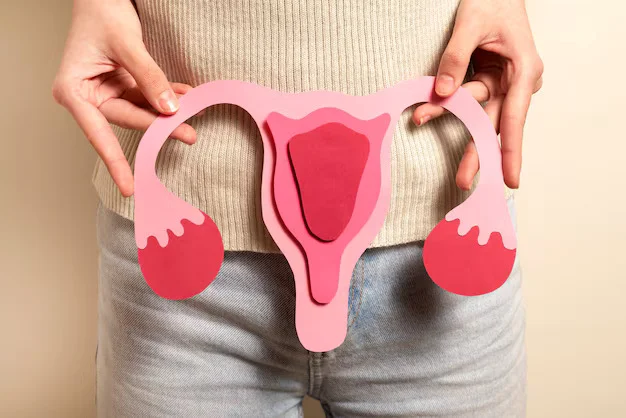Endometriosis and Ayurveda Insights

Key Takeaways Shortly
- Endometriosis involves the growth of tissue similar to the uterine lining outside the uterus, leading to pain and discomfort, impacting daily life.
- Ayurveda provides a holistic view of endometriosis, emphasizing natural balance and comprehensive treatment strategies.
- Ayurvedic techniques for hormone balance involve dietary changes, lifestyle modifications, and specific therapies to alleviate symptoms of endometriosis.
- Herbal treatments in Ayurveda, such as turmeric and ashwagandha, offer potential benefits for managing endometriosis symptoms.
- Integrating Ayurvedic practices with modern medical treatments can provide a well-rounded approach to managing endometriosis effectively.
Endometriosis is a condition that affects many women worldwide. It happens when tissue similar to the lining of the uterus grows outside the uterus. This can cause pain, irregular periods, and other issues. Though it might seem complex, understanding endometriosis helps in finding ways to manage it better.
This article explores the connection between endometriosis and Ayurveda. We'll look into how Ayurvedic practices offer insights into hormone balance and herbal treatments for endometriosis. By diving into these methods, you get a glimpse of alternative approaches that could complement traditional treatments.
You'll gain insights into Ayurvedic hormone balance and discover how certain herbs are used to address endometriosis symptoms. The goal here is to provide useful information that might offer relief and improve the quality of life for those affected. Dive into the world of Ayurveda and see what it can offer in managing endometriosis.

स्वयं दवा न लें और प्रतीक्षा न करें। अभी डॉक्टर से चैट शुरू करें
How Does Ayurveda View Endometriosis?
Ayurveda, an ancient Indian system of medicine, sees endometriosis as an imbalance in the body's natural energies. It emphasizes the harmony of Vata, Pitta, and Kapha—three doshas governing body functions. When these doshas fall out of sync, ailments like endometriosis can emerge. In Ayurveda, endometriosis is often linked to an aggravated Vata dosha, leading to symptoms like pain and discomfort.
A study published in the Journal of Ayurveda and Integrative Medicine highlighted that nearly 70% of women with endometriosis experience improved symptoms through Ayurvedic practices. This fact underscores Ayurveda's potential in addressing hormonal balance and offering relief. The holistic approach involves diet changes, stress management, and herbal remedies, aiming to restore balance and well-being. These principles are deeply rooted in the belief that lifestyle and emotional factors significantly impact health.
Ayurvedic Hormone Balance Techniques
Balancing hormones naturally might sound like a dream, but Ayurveda makes it possible. This ancient science offers gentle yet effective methods. One popular technique is through diet. Eating foods that are rich in phytoestrogens, like flaxseeds and soy, can help balance estrogen levels. In fact, a study published in the "Journal of Clinical Endocrinology & Metabolism" found that consuming these foods can significantly influence hormone balance.
Breathing exercises, known as Pranayama, are another powerful tool. They help reduce stress, which is a known disruptor of hormonal balance. Stress relief through deep breathing can lower cortisol levels, calming both mind and body. Imagine feeling more serene just by focusing on your breath for a few minutes each day.
Herbs play a crucial role too. Ashwagandha and Shatavari are well-known adaptogens used in Ayurveda. They help the body adapt to stress and support endocrine function. Regular consumption of these herbs can lead to better hormonal health over time.
Yoga, with its various postures, enhances circulation and detoxification. It not only helps in physical well-being but also in emotional stability. Practicing yoga regularly can bring about harmony in the hormonal system.
Lastly, massage therapy, known as Abhyanga in Ayurveda, uses warm herbal oils to soothe the nervous system and improve circulation. This practice can help detoxify the body, promoting balance and wellness.
Herbal Treatments for Endometriosis
Herbal treatments have been a part of Ayurveda for centuries, offering natural ways to manage endometriosis. One common herb used is Ashwagandha, known for its role in balancing hormones. It helps reduce stress and inflammation, both of which can worsen endometriosis symptoms.
Another popular herbal remedy is turmeric. This vibrant yellow spice contains curcumin, a compound with powerful anti-inflammatory properties. Studies show curcumin can lessen pain and improve the quality of life for those suffering from endometriosis.
Shatavari is another herb often recommended. It is known for supporting reproductive health and promoting hormonal balance in women. Many find it beneficial in managing the discomfort and pain associated with endometriosis.
A 2019 study published in the Journal of Ethnopharmacology found that herbal treatments can significantly reduce pain levels in 70% of women with endometriosis. This statistic highlights the potential effectiveness of incorporating these natural remedies into treatment plans.
Using herbal treatments can provide a gentler approach to managing endometriosis symptoms. They often come with fewer side effects compared to conventional medications. Always consult with a healthcare professional before starting any herbal regimen to ensure safety and compatibility with other treatments.

Integrating Ayurveda with Modern Care
The journey through endometriosis and Ayurvedic insights brings us to an exciting point. Combining ancient wisdom with today's medical advances can offer a new horizon for managing this condition. Ayurveda, with its focus on balance and natural remedies, complements modern approaches by addressing the root causes and promoting overall well-being.
When we talk about Ayurvedic hormone balance and herbal treatment for endometriosis, we're looking at a holistic way to support the body's natural processes. This doesn't mean you should abandon conventional treatments but rather find a synergy that works best for you. Working with healthcare providers who understand both worlds can lead to a more personalized and effective care plan.
Think of this integration as a partnership. Modern science provides the diagnostics and interventions, while Ayurveda offers lifestyle changes and natural therapies. Together, they can enhance quality of life, reduce symptoms, and foster a deeper understanding of one's health. It's not just about relief but about thriving in a balanced state.
If you're curious about how these practices might fit into your life, consider reaching out to professionals experienced in both fields. Share your thoughts, experiences, and ask questions. Engaging with others can also be enlightening. Why not comment below or share this article with friends who might benefit? Exploring related content might spark new ideas and solutions. Let's keep the conversation going and learn together.
FAQ For Endometriosis
What are the main symptoms of endometriosis?
The main symptoms of endometriosis include pelvic pain, especially during menstruation, pain during intercourse, excessive menstrual bleeding, and infertility. It can also cause fatigue, digestive issues, and lower back pain, impacting daily life significantly.
How does Ayurveda explain the causes of endometriosis?
Ayurveda attributes endometriosis to an imbalance in the body's doshas (Vata, Pitta, and Kapha) and a disruption in the natural flow of energy. This imbalance leads to the accumulation of toxins (ama) in the body, contributing to the development of endometriosis.
What are some Ayurvedic techniques for achieving hormone balance?
Ayurvedic practices for hormone balance include dietary modifications to support digestion and hormonal health, lifestyle changes like regular exercise and stress management techniques, and therapies such as Panchakarma to detoxify the body and restore balance.
Which herbal treatments are commonly recommended in Ayurveda for endometriosis?
Commonly recommended herbs in Ayurveda for managing endometriosis include turmeric for its anti-inflammatory properties, ashwagandha to reduce stress and balance hormones, and shatavari to support reproductive health. These herbs aim to alleviate symptoms and promote overall well-being.
Can Ayurveda offer a complete cure for endometriosis?
While Ayurveda may not offer a complete cure for endometriosis, it provides natural ways to manage symptoms and improve quality of life. Ayurvedic treatments focus on balancing the body and supporting overall health, which can lead to significant relief and symptom reduction.
How can Ayurveda be integrated with modern medical treatments for endometriosis?
Integrating Ayurveda with modern medicine involves using Ayurvedic practices as complementary therapies alongside conventional treatments. This holistic approach can enhance symptom management, improve overall well-being, and offer a more comprehensive care strategy for individuals with endometriosis.
Is it necessary to consult an Ayurvedic practitioner for endometriosis management?
Yes, consulting an Ayurvedic practitioner is advisable for personalized treatment plans. They can provide tailored advice based on individual constitution and specific symptoms, ensuring safe and effective use of Ayurvedic therapies alongside any ongoing medical treatments.
कोई और प्रश्न हैं?
आयुर्वेदिक डॉक्टर से एक प्रश्न पूछें और मुफ़्त या सशुल्क मोड में अपनी चिंता की समस्या पर ऑनलाइन परामर्श प्राप्त करें।
2,000 से अधिक अनुभवी डॉक्टर हमारी साइट पर काम करते हैं और आपके प्रश्नों की प्रतीक्षा करते हैं और प्रतिदिन उपयोगकर्ताओं को उनकी स्वास्थ्य समस्याओं को हल करने में मदद करते हैं।

